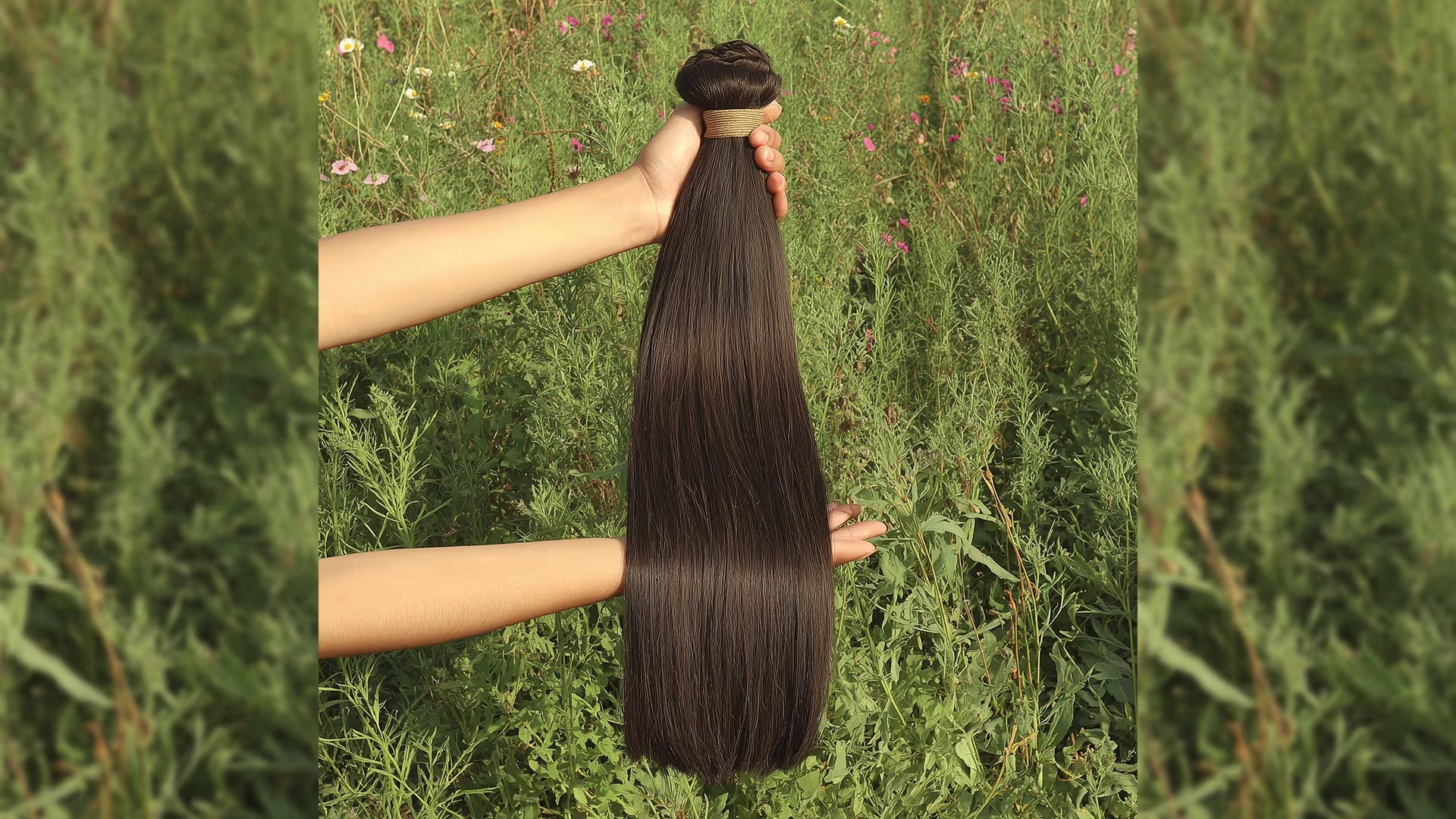Key Takeaways
- Plant-based extensions from banana fibers are biodegradable and cost 60% less than human hair
- Clip-in extensions have the lowest environmental impact due to temporary use
- Ethical sourcing ensures fair compensation ($90-450 vs $3-15 industry standard)
- Human hair extensions biodegrade in 2-7 years vs 200-500 years for synthetic
- Proper care can extend extension lifespan by 50-70% reducing replacement needs
- B Corp certified brands meet highest sustainability standards with third-party verification
Sustainable Hair Extensions: Your Complete Guide to Eco-Friendly Beauty Choices
The hair extension industry is changing fast, and honestly? It's about time. As someone who's been working with extensions since 2017, I've watched clients become way more conscious about what goes into their hair and how it affects our planet. The $7.5 billion global hair extension market is finally catching up to what we've all been thinking - we need better options that don't trash the environment.
Let me tell you something that might surprise you - synthetic extensions contribute over 30 million pounds of non-biodegradable waste to landfills every single year. That's insane when you think about it! But here's the good news: innovative companies are creating amazing alternatives that actually work better AND cost less in the long run.
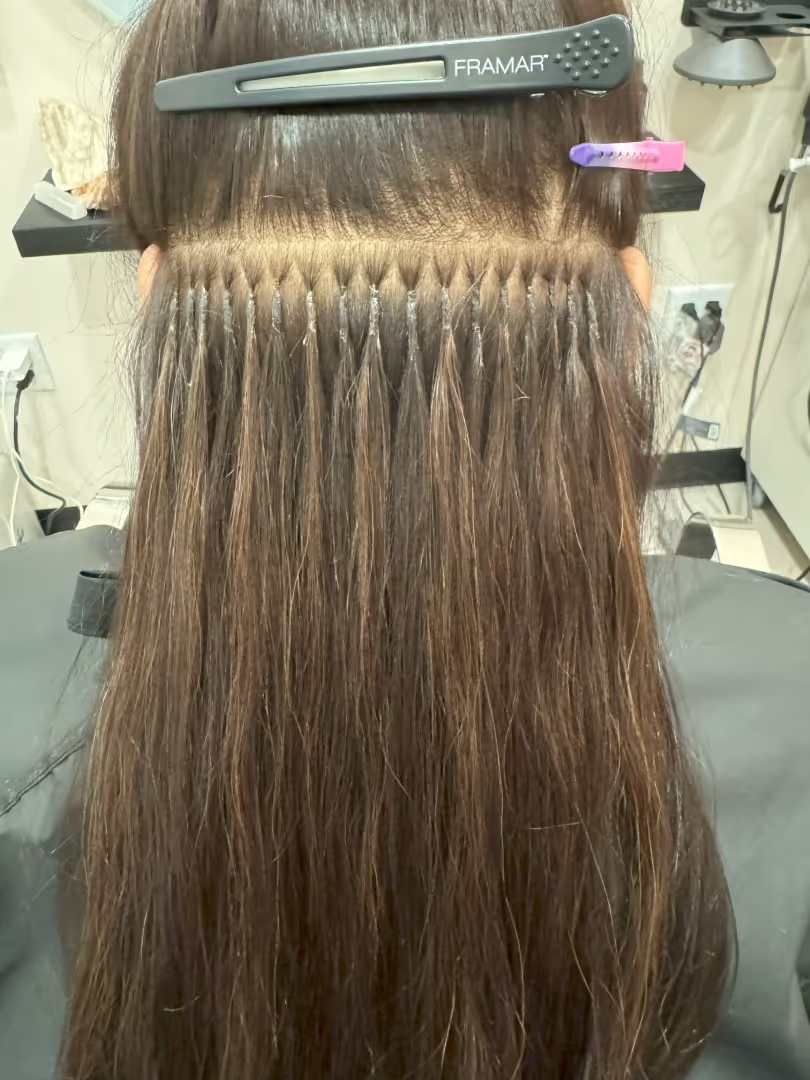
Revolutionary Plant-Based Materials Leading the Way
Okay, so this is where things get really exciting. Companies like Rebundle have figured out how to make extensions from banana fibers - yes, actual banana stems that would normally just get thrown away! These aren't some weird experimental thing either. They cost $20-30 per set compared to $149-319 for traditional human hair, and they're naturally antimicrobial.
What blew my mind when I first learned about this is that banana fiber extensions can handle heat up to 400°F. That means you can still use your regular styling tools! Plus they completely biodegrade within 1-2 years instead of sitting in a landfill for centuries. Companies like Raw Society Hair and Cheveux Organique in Uganda are also developing these technologies, creating jobs while making eco-friendly options.
Hemp fibers are another plant-based option gaining traction. They're super versatile and Korean manufacturer Spetra Hair has developed natural plant fiber blends that look and feel incredibly natural. The best part? You're not compromising on quality or appearance - these materials are getting so good that most people can't tell the difference.

Ethical Sourcing Practices That Actually Matter
Here's something that really gets me fired up - the difference in how donors are compensated. Leading companies are now paying Vietnamese donors $90-450 versus the old industry standard of $3-15. That's not just better ethics, that's basic human decency.
Beauty Industry Group, which owns Luxy Hair, conducts independent social compliance audits for 100% of their suppliers. They're paying 10-20% premiums to vendors specifically to prevent unethical sourcing. They've even developed blockchain technology for supply chain transparency, so you can actually verify where your hair came from.
Temple hair from India offers another ethical model where hair is voluntarily donated during religious ceremonies. While there are still questions about direct donor compensation, it's way more sustainable than exploitative collection methods. Companies like Great Lengths primarily source this way.
The transparency thing is huge for me. When I'm working with clients, I want to know exactly where their extensions came from and that everyone in the supply chain was treated fairly. It's not just about the environment - it's about the people too.
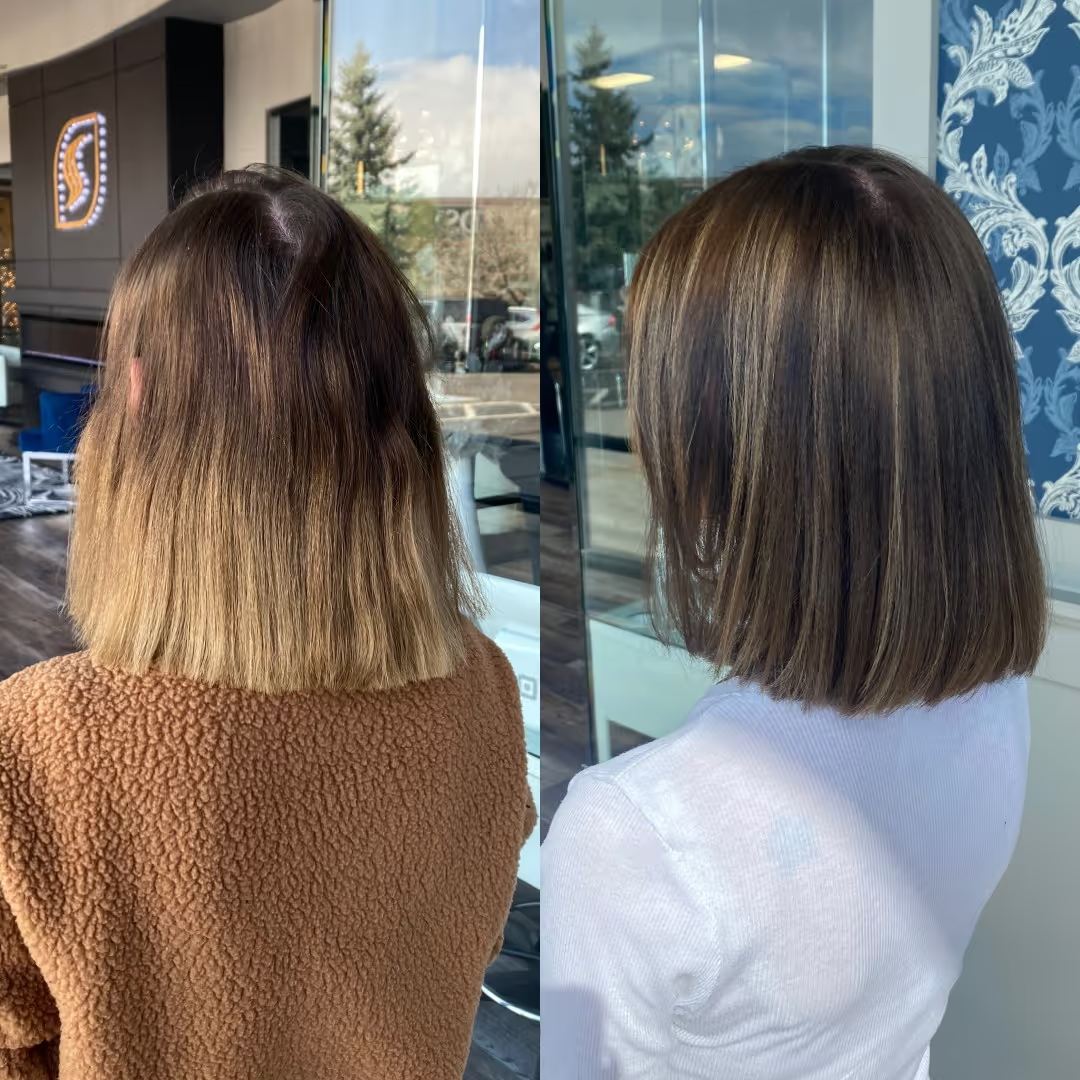
Environmental Impact Varies Dramatically by Extension Type
If you're looking for the lowest environmental impact, clip-in extensions are your best bet hands down. They're temporary, reusable for 6-12 months, don't require any adhesives or chemicals, and create zero chemical waste during removal. Plus you can reuse them multiple times daily.
Human hair extensions are way better environmentally than synthetic ones. Sure, they take 2-7 years to biodegrade, but they're completely renewable and can actually be recycled for oil spill cleanup or composting. Hair contains 16% nitrogen content compared to only 0.6-3% in manure, making it valuable for slow-release plant fertilization.
Synthetic extensions are the worst offenders environmentally. They take 200-500 years to decompose and release microplastics every time you wash them. The manufacturing requires petroleum-based chemicals with high carbon emissions. But companies like Rebundle are at least offering recycling programs, turning old synthetic extensions into outdoor furniture and garden tools.
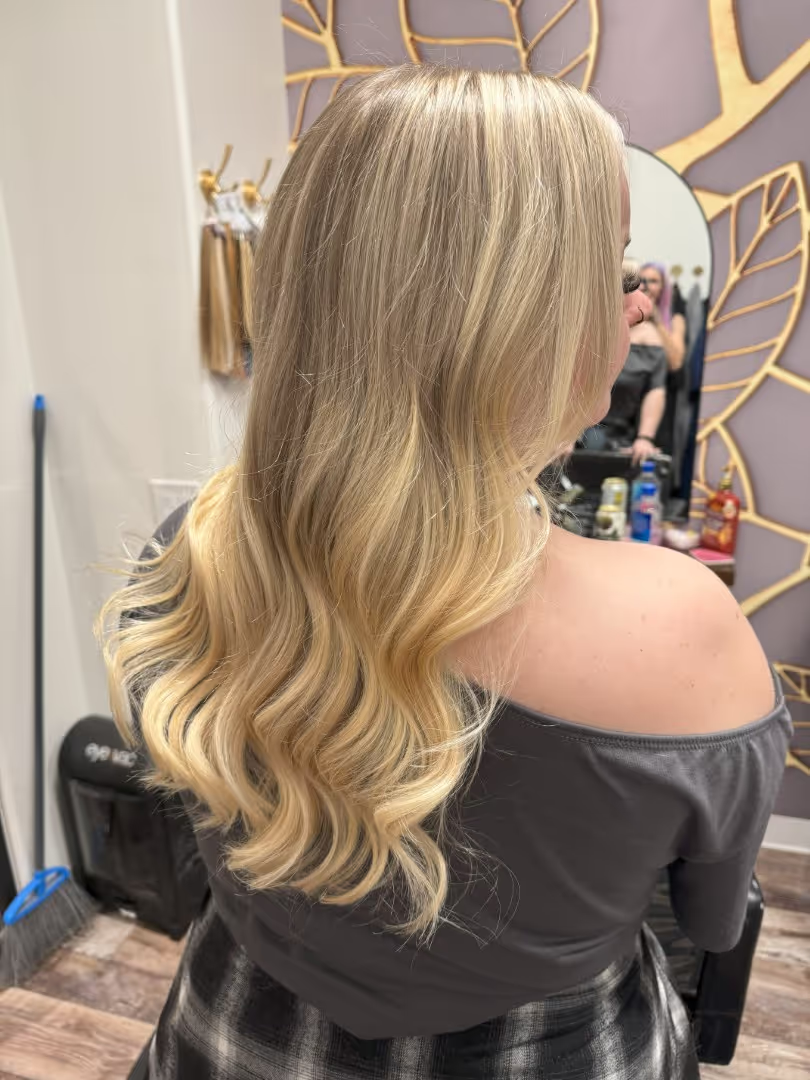
Leading Sustainable Brands Worth Checking Out
Rebundle is honestly revolutionary with their plant-based braids made from banana fibers. They're fully biodegradable, vegan-friendly, and their $20-30 price point makes sustainable options accessible to way more people. They also recycle old plastic extensions into useful items.
Luxy Hair has impressed me with their transparency. They do 11-month factory audits across 32 facilities, use ethically sourced Remy human hair with verified donor compensation, and switched to recyclable packaging made with FSC paper and soy inks. They ensure 8-hour work days, insurance, and fair wages for all workers.
Cliphair offers 100% ethically sourced Remy human hair with vegan, cruelty-free haircare lines free from sulfates and parabens. Their transition to eco-friendly packaging shows they're thinking about sustainability comprehensively.
Australian company Sitting Pretty Halo Hair provides premium Remy hair with innovative halo wire systems that eliminate clips, glues, or weaves entirely. Their $164-301 AUD pricing reflects premium sustainable positioning.

How to Spot Real Sustainability vs Greenwashing
This is so important because there's a lot of fake "eco-friendly" marketing out there. Authentic sustainable brands will have specific certifications like B Corp Certification, which requires 80+ points and comprehensive third-party verification. Great Lengths achieved B Corp status with 103/100 scores.
Red flags to watch for include vague terms like "eco-friendly" without specific evidence, nature imagery without actual environmental practices, and claims of "100% organic" hair extensions (which is impossible due to required chemical processing). Super low prices often indicate exploitative practices.
Ask specific questions about hair sourcing locations, donor compensation methods, factory auditing processes, and environmental impact mitigation. Reliable verification resources include the B Corp directory, Environmental Working Group database, and Think Dirty app for ingredient safety.
Third-party certifications like Fair Trade, Leaping Bunny (cruelty-free), and ECOCERT (organic) provide additional verification. Don't just take marketing claims at face value - dig into the actual certifications and practices.

Making Your Extensions Last Longer Through Proper Care
Here's where you can make a huge environmental impact just by taking better care of what you already have. Sustainable care practices can extend extension lifespan by 50-70% while reducing environmental impact.
Wash your extensions 1-2 times weekly instead of daily - this reduces water usage by 65-70% and prevents over-drying. Use sulfate-free shampoos and silicone-free conditioners to minimize environmental chemical load while extending product lifespan.
Air drying reduces energy consumption by 80% compared to heat styling. When you do need to use heat, use lower settings to prevent damage that would require replacement sooner. Proper storage in silk or satin pouches prevents tangling and breakage.
At Jo Hearts Hair, I always teach my clients proper brushing techniques to minimize damage. It's not just about making them look good - it's about making them last longer so you're not constantly replacing them.
Hair recycling programs offer sustainable disposal options through organizations like Matter of Trust Clean Wave Program, which processes 31.5 tons daily of hair waste for oil cleanup materials. Some brands offer buy-back programs too - Luxy Hair provides $15 credits for returned extensions.

The Real Cost of Going Sustainable
Let's talk money because I know that's a big factor for most people. Sustainable extensions typically cost 15-30% more upfront, but their superior durability creates better long-term value. Sustainable options last 6-12 months versus 3-6 months for conventional alternatives.
Professional installation costs stay comparable across sustainable and conventional options ($200-1,000), with maintenance every 6-8 weeks costing $150-250. When you factor in extended lifespan and reduced replacement needs, the total annual cost becomes comparable.
Plant-based options like Rebundle's $20-30 pricing actually cost way less than conventional human hair extensions while providing better environmental benefits. That's a win-win situation if I've ever seen one.
Climate Neutral certification ensures brands offset 100% of carbon emissions, while USDA Certified Bio-based Product verification applies to plant-based materials. Rebundle has 97% bio-based certification, which is incredible.
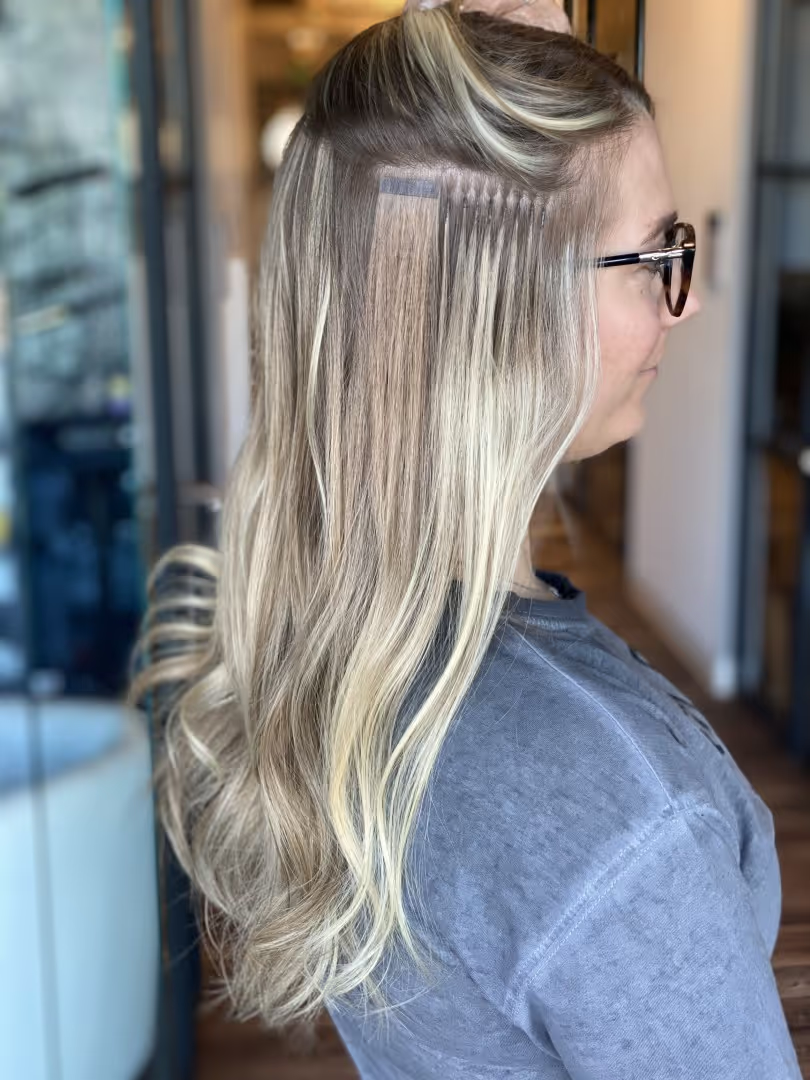
Latest Innovations Changing Everything
The technology advances I'm seeing are honestly mind-blowing. UV-Bond technology uses special adhesives that harden under UV light for undetectable bonds, reducing processing time and improving durability. This means less waste from failed applications.
Nanotechnology applications create molecular-level protective coatings that enhance durability and shine while improving environmental resistance. Donna Bella Hair's heat-free tape-in technology eliminates hair damage during application.
Virtual try-on technology using AR/VR and AI-driven customization tools enhance customer experience while reducing returns and associated environmental impact. Blockchain technology is being developed for supply chain transparency, enabling consumers to verify ethical sourcing.
These innovations aren't just cool tech - they're making sustainable options more accessible and effective for everyone.
Frequently Asked Questions
**Are plant-based extensions as durable as human hair?**
Yes! Banana fiber extensions can handle heat up to 400°F and last 6-12 months with proper care. They're naturally antimicrobial and antifungal, often lasting longer than some synthetic options.
**How much more do sustainable extensions cost?**
Sustainable options typically cost 15-30% more upfront but last 50-100% longer. Plant-based options like banana fiber actually cost 60% less than human hair extensions at $20-30 per set.
**Can I recycle my old extensions?**
Absolutely! Human hair can be composted or donated to oil spill cleanup programs. Some brands offer buy-back programs, and organizations like Matter of Trust process hair waste into useful materials.
**What certifications should I look for?**
B Corp Certification is the gold standard, requiring 80+ points for social and environmental performance. Also look for Fair Trade, Leaping Bunny (cruelty-free), and ECOCERT certifications.
**Do sustainable extensions work with all hair types?**
Yes, sustainable options are available for all hair types. Plant-based materials can be processed to match different textures, and ethically sourced human hair comes in every texture naturally.
**How do I dispose of extensions sustainably?**
Human hair can be composted, donated to hair recycling programs, or used in gardening as natural fertilizer. Synthetic extensions should be recycled through brand take-back programs when available.
Ready for Your Perfect Sustainable Extensions?
Remember, everyone's sustainability journey is unique! What works for one person might need tweaking for another, and that's completely normal. The most important thing is making informed choices that align with your values.
Want personalized sustainable extension advice? Stop by Jo Hearts Hair in Lone Tree, and let's create your perfect eco-friendly transformation together! I love helping clients find options that look amazing AND feel good about their environmental impact.
Located at: 9227 East Lincoln Ave, Suite #111, Lone Tree, CO 80124
Book your consultation today!
Follow @joheartshair for daily inspiration and behind-the-scenes peeks at stunning sustainable transformations! ✨
Here's to beautiful hair that doesn't cost the earth!
XOXO,
Jo 💕

